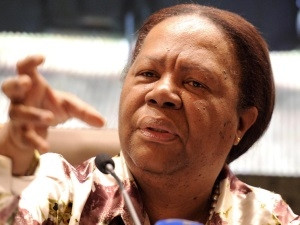
Government will allocate R273 million to the National Integrated Cyber Infrastructure System (NICIS), Science and Technology Minister Naledi Pandor told Parliament during her department's budget vote on Tuesday.
Many of SA's research initiatives and international collaboration are made possible through the veins of Internet capacity, up to 10 gigabits per second, running between institutions and universities, and their connections to the rest of the world. However, demand continues to outstrip supply.
The NICIS, which will have its own dedicated budget, will incorporate the Centre for High-Performance Computing, the South African National Research Network (Sanren), Tenet and the Data Intensive Research Infrastructure for South Africa (Dirisa).
Sanren head Leon Staphorst, who is based at the Council for Scientific and Industrial Research (CSIR), told ITWeb, that more information about the implementation of the system would be divulged later in the year.
"The funding that's been allocated now will be used by the three entities of [the cyber infrastructure system] - which is Sanren, the Centre for High-Performance Computing and Dirisa - to develop services, to roll out new capabilities, to grow the reach of the network, to upgrade the Centre for High-Performance Computing," he said.
Sanren had grown to more than 1 110km of dark fibre and 3 500km of managed bandwidth, connecting more than 200 sites from Thohoyandou to Cape Town, Pandor told Parliament.
The department will receive a budget of R7.4 billion for the 2016/17 financial year, the same as last year.
"South Africa is not investing enough in science, technology and innovation... Our failure to address the funding of this sector is causing us to neglect several sectors that could offer South Africa talent, new products and real contributions to growth," Pandor said.
"A significant amount will be invested in big data, moving South Africa further on its path to becoming a knowledge economy. It is estimated that between 23 000 and 31 000 specialists with deep analytics and big data skills will be needed by 2018," she added.
The Centre for High-Performance Computing, which recently installed its 1 000-teraflop supercomputer, was a member of the international Square Kilometre Array (SKA) Science Data Processing Consortium, she said.
The SKA, whose core will be located in the Northern Cape, will be the largest radio telescope in the world. "The SKA remains a major platform for cutting-edge innovation in domains such as supercomputing the high-speed transmission and processing of massive data sets," Pandor said.
Share